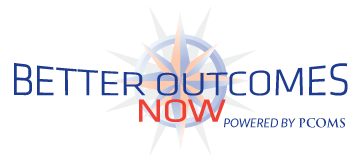May 15, 2017 01:31 PM
A very understated and underrated skill for doing good work, and perhaps one of the, if not the most difficult one for therapists to master, is the ability to keep sessions focused and not get lost in the sometimes confusing and nearly always complex ways that clients unfold their stories. When the conversation jumps from important topic to important topic without thematic connection or relevance to the way the client is experiencing life between sessions, it is almost a guaranteed recipe for failure. But it is not easy to change this dynamic. It can require therapists to step up their involvement and steer the conversation toward ensuring that some meaningful difference is accomplished in the client’s day to day life.
It doesn’t have to be heavy-handed and it can, of course, be collaborative. For example, I often ask clients whether they think it is better to continue talking about the topic at hand or whether we should return to what they are most concerned about. I also find it helpful to ask if it is okay if I return us to task from time to time. But it can be tricky to follow the client’s lead while simultaneously never losing sight of where the client wants to go—to balance being empathic to the sometimes overwhelming presentation of topics and concerns with ensuring that these topics and concerns are tied to making a meaningful difference in the client’s life.
PCOMS really helps here. Monitoring benefit on the ORS, after connecting the client’s reasons for service to the appropriate ORS domains, enables the focus to start and remain on what the client would like to see happen. It helps the therapist stay on task and take charge of channeling the conversation and complexities of clients’ lives toward something tangible that will make a difference. “What will it take to move your mark on the Interpersonal domain just 1 cm to the right?”
Of course, it is much easier to meander across a myriad of worthwhile topics and legitimate concerns and not connect the conversation to what the client will actually do or experience between sessions. The unfortunate result is a “process therapy” that represents an ongoing commentary of the client’s life that never leads to any real change. Human beings have an endless source of material “to process” and if we allow that to be what therapy is about, instead of change, then it can become a therapy without end.
Another pitfall of a lack of focus without attention to change is that the work becomes “supportive therapy,” often with an accompanying explanation that the client “needs” maintenance work, or that a positive relationship is enough to provide for a client in tough circumstances. While these practices and ideas may make sense at times, therapy can quickly devolve into a place for clients to hang out and talk, receive support, and combat loneliness. Therapy can do these things at times, but it should also create the possibility for clients to attain these benefits in the community—not from a professional. Without an aspiration toward helping clients achieve more independence in the community, therapy can be a disservice to clients—creating dependency and fostering a client identity of helplessness and pathology.
PCOMS helps to prevent the pitfalls of process and supportive therapy. Monitoring benefit on the ORS keeps the focus on change as well as what small but significant action could improve the client’s quality of life. The ORS allows us to ask ourselves the hard question: are we helping or hindering? In so doing, PCOMS is a way to support what is working and challenge what is not. It offers an antidote to the sometimes poisonous pontifications about clients that lead us to accept therapies that assume that clients can’t or won’t change.





.png)


.png)